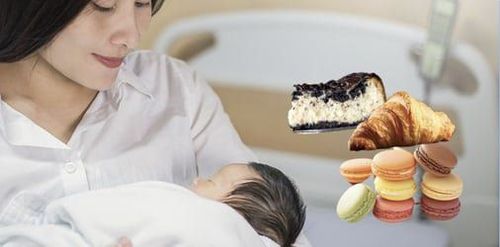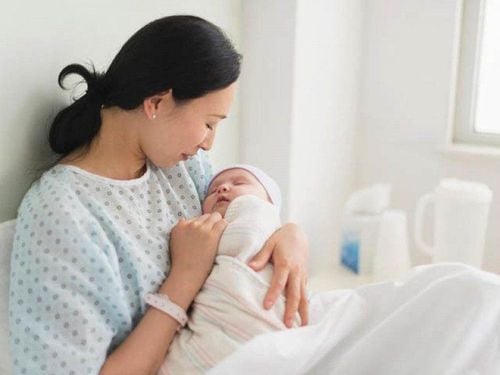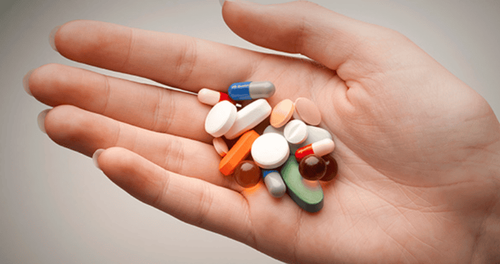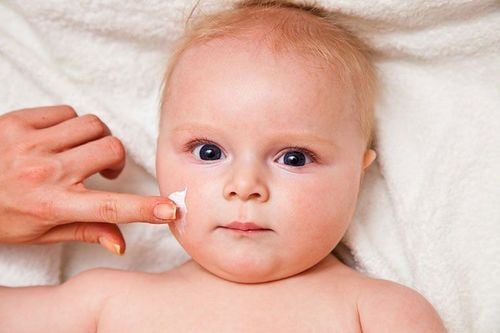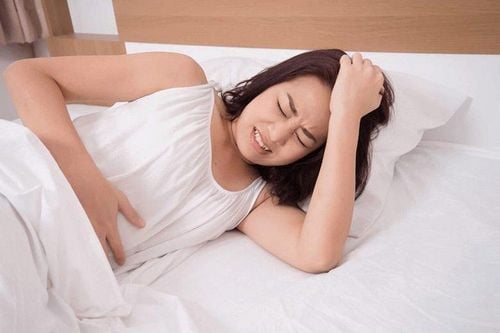This is an automatically translated article.
Currently, some women after giving birth have allergic urticaria and this phenomenon has affected health, quality of life as well as making women feel very uncomfortable in daily life. The cause of postpartum urticaria is thought to be due to many factors affecting hormonal changes and needs to be thoroughly investigated to have an effective treatment.
1. Allergic urticaria after giving birth
Postpartum allergic urticaria is a dermatological condition in a woman after childbirth. This phenomenon not only affects the skin, but also affects the internal health of the mother and even affects breast milk. In about 1 to 3 months after giving birth, be it normal delivery or cesarean section, you will experience symptoms of allergic urticaria such as skin rashes, itching... Allergic urticaria This postpartum usually exists in 2 clinical forms as follows:
Acute urticaria: The symptoms of allergic urticaria usually appear at night, within a few hours or last up to less than 6 weeks . Chronic urticaria: The above symptoms persist for longer than 6 weeks, occur in many episodes, recur and repeat many times, for a long time.
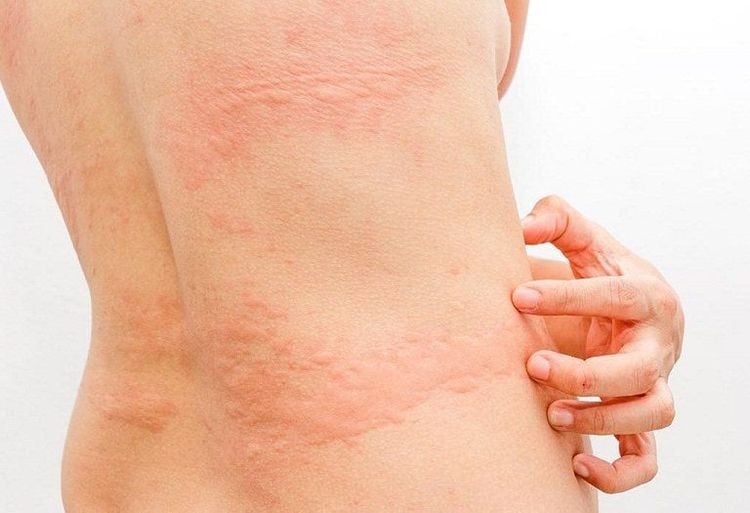
Some of the main symptoms of allergic urticaria after giving birth are as follows:
The skin has red rashes like mosquito bites, mainly on the abdomen, wrists, legs and spreads in large patches all over the body. , these nodules are often lumpy and edematous. Feeling of itching in the urticaria area, itching much at night or in the evening, causing discomfort. The eyelids, lips and genitals are swollen and swollen with a burning sensation.
Trắc nghiệm: Bạn có hiểu đúng về dấu hiệu mang thai sớm?
Các dấu hiệu mang thai sớm không phải chỉ mỗi trễ kinh mà còn có rất nhiều dấu hiệu khác như xuất huyết âm đạo, ngực căng tức,… Điểm xem bạn biết được bao nhiêu dấu hiệu mang thai sớm thông qua bài trắc nghiệm này nhé!
2. Causes of postpartum urticaria
The cause of postpartum urticaria is explained by the body's immune system overreacting to allergens, causing the body to produce histamine, causing the skin to develop hives, inflammation, swelling... The woman's immune system has such abnormal reactions because between pregnancy and the postpartum period, there are hormonal changes, but they are not balanced with each other. postpartum allergic urticaria. Some specific causes of allergic urticaria in postpartum women are:
Inadequate, unscientific nutrition causes the body to fall into an unbalanced state. Use some drugs such as anti-inflammatory drugs, serums. Eat some foods that cause allergies such as seafood, milk, eggs... Allergic to some agents such as pollen or feathers of some animals. The weather also affects the urticaria allergy a lot. Postpartum women's liver function is impaired. Not good living habits such as staying up late, stress, stress... According to some studies, when women give birth by caesarean section, the possibility of allergic urticaria after childbirth is will be higher than normal delivery, however, there are still cases of normal birth with allergic urticaria postpartum.

3. How long does postpartum urticaria go away?
Allergic postpartum urticaria for different women has different recovery time, usually, how long the problem of postpartum urticaria depends on a number of factors such as:
Geography : Different skin conditions and structures will have different recovery times, there may be symptoms of allergic urticaria in 2-3 days and then spontaneously disappear or may last for a few days. the week. Health, diet: If a woman is in good health and has a diet full of essential nutrients, the time to cure the disease will be faster than those with an unscientific diet. Severity of the disease: If you have acute urticaria, the healing time is faster than chronic urticaria.
Postpartum allergic urticaria often causes discomfort and affects a woman's health and sleep, thereby leading to a number of complications such as:
Skin infection, sometimes encountering superinfection . Angioedema, uvula edema, laryngospasm, shortness of breath, low blood pressure, high fever, anaphylaxis, long-term insomnia, stress, stress, weakness, exhaustion, depression
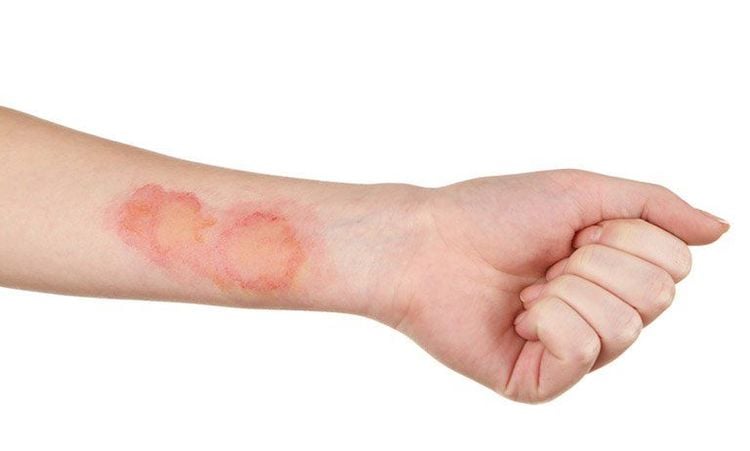
4. How to treat hives after giving birth
Some home remedies for hives after giving birth are as follows:
Drink lots of water, you can drink green tea or herbal teas Bath with oatmeal Wear, wear clothes wide and airy. Moderate and scientific living mode such as sleeping early, on time, reducing stress Eat enough nutrients Always keep the body warm, avoid wind, bacteria and allergens that cause hives. Daily body hygiene For severe allergic urticaria or chronic urticaria, the treating doctor will prescribe drugs such as:
Antihistamines such as Chlorpheniramine. Corticosteroids such as budesonide. Steroids are used for topical application on the skin.
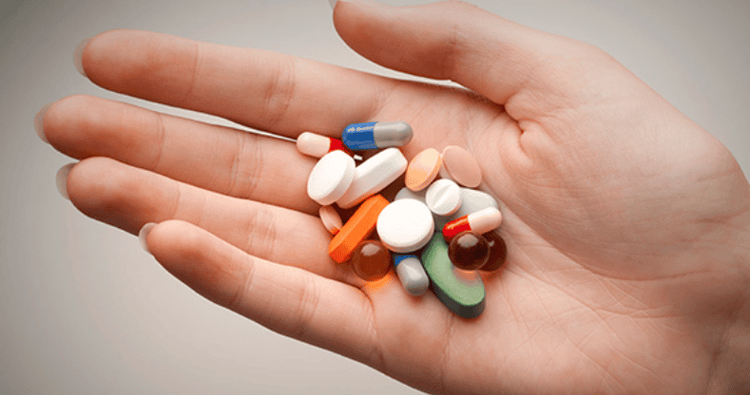
These drugs should be consulted by a doctor specifically because they can affect the milk supply that the mother is breastfeeding, affecting the health, growth and development of the child during this period and in the future. later time.
Postpartum allergic urticaria is a very common phenomenon in women after childbirth, although not life-threatening, but has impacts on the life and health of women in the postpartum period. . When there are any signs of allergic urticaria, the woman should go to a medical facility for examination, diagnosis and proper treatment.
To register for examination and treatment at Vinmec International General Hospital, you can contact Vinmec Health System nationwide, or register online HERE
MORE
Diagnosis and treatment Urticaria Learn the causes of hives Urticaria during pregnancy and postpartum: What you need to know




